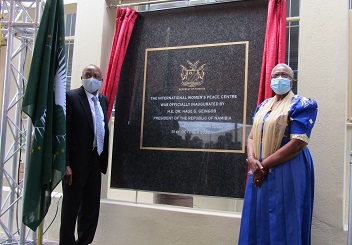
Transport Strike: A lesson for Namibia
In the aftermath of the recent transport strike in South Africa which threatened local industries, retailers and consumers alike with shortages, Team Namibia says the time has now come for increased use of locally manufactured products.
In an interview with The Economist, General Manager of Team Namibia, Lizette Foot said a scenario where 80% of consumer products was imported from South Africa posed a serious national security risk which could be addressed by supplying the local market with what is already available on the market.
She said: “Currently there is a disconnect between what local manufacturers, producers and service providers supply versus what is available in Namibian outlets. “Namibian businesses have to realise that we can’t always take imports for granted.
“… we should aim to supply the local market with what is available locally as far as possible as this would have a positive impact on economic sustainability and prevent businesses from losing money if these scenarios[strikes] occur.”
Although calling for more engagement between local retailers and manufacturers, Foot said she is encouraged by the support that her members are receiving lately from the country’s three biggest retailers – Pick & Pay Namibia, Woermann Brock and Spar Namibia – who are all members of Team Namibia.
Foot added: “We are seeing an increase in retailers’ support for buy-local campaigns. This provides a platform for raising consumer awareness of the Namibian products that are available in their stores, and ultimately has a positive impact on the economy.
“Team Namibia realises that retailers play an integral part to the success of our initiative by providing the platforms to make Team Namibia products and services accessible to Namibian consumers.”
She advised retailers to clearly identify their standards such as health & safety to give potential manufacturers and producers and service providers the opportunity to be considered for listings. “And giving constructive feedback throughout the process,” she added.
Foot said it is crucial for retailers to clearly highlight Namibian products and make them easily identifiable to consumers in their advertising materials. She said there is need for more awareness of Namibian products and services and the benefits of buying them on an emotional and rational level to stimulate a change in consumer behaviour while calling for Namibian products and services to become more competitive.
In this vein, she said Team Namibia will soon embark on a market analysis and stakeholder perception survey to get a clear understanding of the parameters in which Namibian retailers operate to inform our strategy and garner support from all stakeholders in order to further our goal of stimulating economic sustainability in Namibia.
“Some of the key questions we are looking to answer include: The barriers to convincing Namibians to buy Namibian products and services on a rational and emotional level; Garnering support for listings of Namibian products at Namibian retailers; Meeting competitive standards throughout the manufacturing process, and applying these standards to service providers and the SME sector respectively.”









































